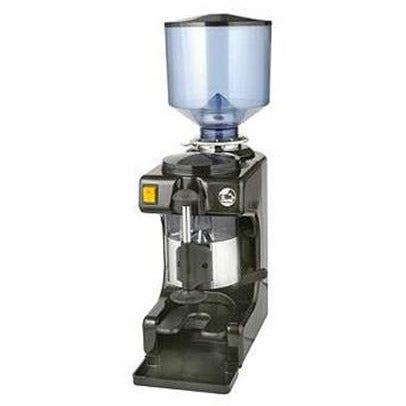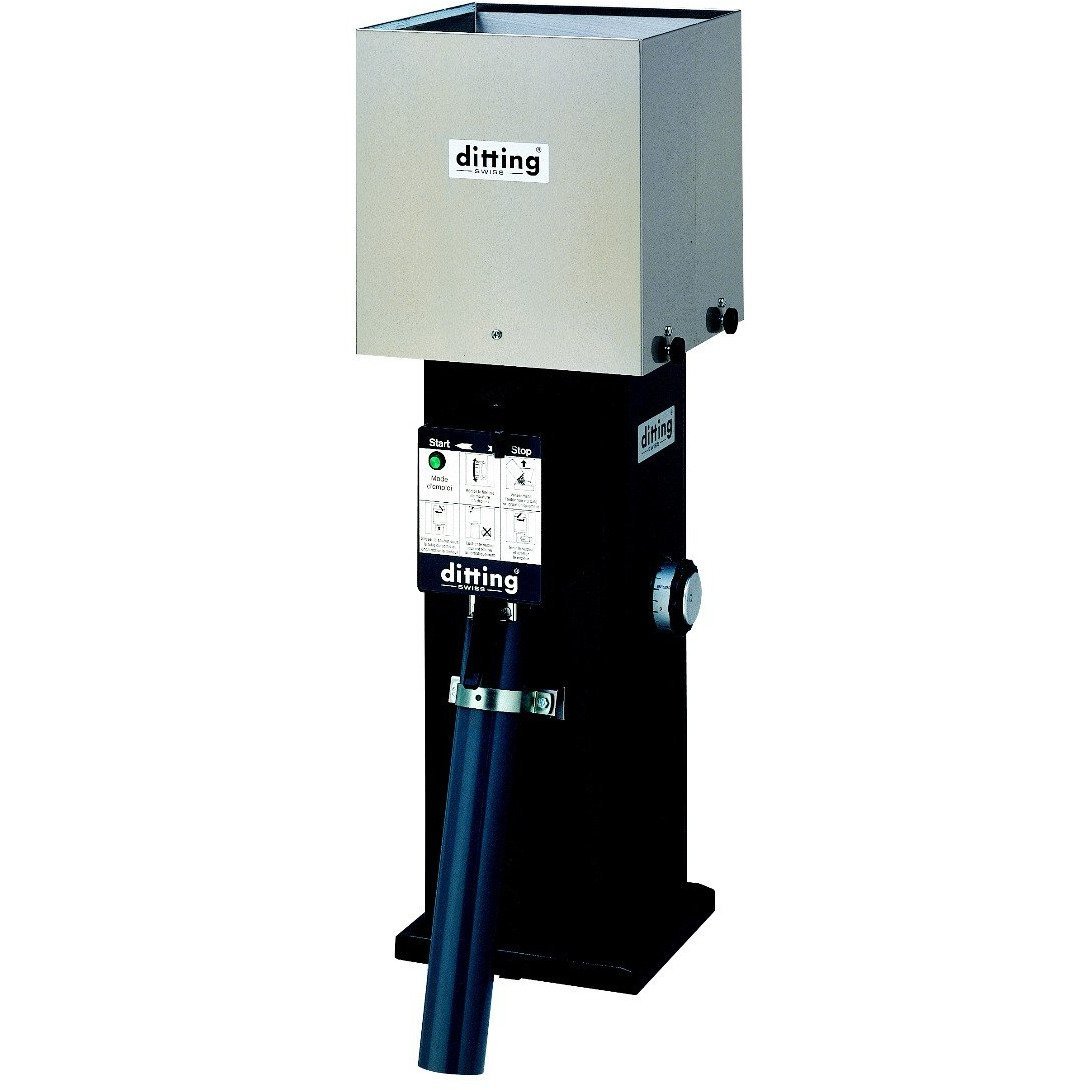Exactly How to Select the Perfect Industrial Coffee Mill for Your Service
Selecting the excellent commercial coffee mill for your company is a diverse choice that calls for careful consideration of several important factors. It is necessary to assess your details grinding needs, including the volume of coffee refined and the preferred grind uniformity, as these components straight affect taste and customer contentment. In addition, understanding the different kinds of grinders offered can significantly influence your operational efficiency. As you navigate these factors to consider, one need to likewise consider the effects of budget plan and upkeep. What various other aspects could make or break your choice?
Assess Your Grinding Demands
When choosing a commercial coffee grinder, one have to first examine their grinding demands to make certain ideal efficiency and uniformity. This preliminary examination entails recognizing the quantity of coffee to be processed daily, along with the desired grind size for numerous brewing techniques. A high-capacity grinder might be necessary for organizations offering big quantities of coffee, while smaller sized procedures could find an extra portable model sufficient.
Moreover, it is necessary to think about the kinds of coffee beans being used, as different beans might need details grinding techniques to achieve the most effective flavor profile. Oily beans may demand a grinder developed to deal with such qualities without overheating or clumping.
Specialized coffee services often require accurate work dimensions to improve extraction and taste, making it essential to choose a grinder that can supply uniform results. Examining the offered room and electric demands will help in selecting a mill that fits seamlessly into your functional workflow.
Understand Grinder Kind
Understanding the different kinds of industrial coffee mills is essential for making an educated selection that meets specific operational needs. There are largely two classifications of grinders: blade mills and burr grinders.
Blade grinders utilize rotating blades to cut the coffee beans, causing an inconsistent work dimension - Industrial Coffee Grinder. While they may be a lot more budget friendly, they are frequently not ideal for business applications where precision is necessary
On the various other hand, burr grinders offer an extra uniform work by crushing the beans between 2 surfaces. They can be more classified into level burr and cone-shaped burr grinders. Apartment burr grinders use a constant grind dimension and are normally preferred for espresso preparation, while conelike burr grinders are versatile and can take care of a series of brew approaches, from espresso to French press.
When picking a mill, take into consideration the certain requirements of your service, consisting of desired work consistency, manufacturing quantity, and the kinds of coffee beverages you plan to use - Industrial Coffee Grinder. Each grinder type has its advantages and restrictions, so recognizing these nuances allows informed decision-making that lines up with functional goals
Evaluate Work Size Uniformity
Accomplishing grind size uniformity is vital for producing high-quality coffee, as variants in particle dimension can considerably affect extraction and taste. When selecting a commercial coffee grinder, it is vital to assess exactly how well the machine preserves harmony in grind dimension across different batches. Irregular grind dimensions can lead to unequal removal, leading to a cup that might taste weak or excessively bitter.
To analyze grind dimension consistency, take look at this now into consideration grinders with functions such as flexible grind settings and high-grade burrs. Burr mills, specifically, master generating consistent bit sizes contrasted to blade mills. The material and shape of the burrs play a crucial role, with stainless steel and ceramic options offering longevity and precision.

Think About Production Capability
In the hectic world of coffee production, thinking about production capability is vital for services intending to satisfy demand without giving up top quality. The manufacturing ability of a commercial coffee mill straight influences a company's capability to meet orders effectively, handle stock, and reply to varying market trends.
When analyzing manufacturing capability, it is vital to examine the grinder's output rate, usually determined in pounds per hour. This dimension needs to line up with your company's projected sales quantity and growth targets. As an example, a café my company with a high turn over might require a mill that can refine numerous hundred extra pounds daily, while a smaller procedure could be enough with a lower ability design.
Additionally, take into consideration the sort of coffee being processed. Different beans and blends may impact grinding speed and performance, requiring a mill with Full Article the ability of taking care of diverse manufacturing requirements. It's additionally worth factoring in the mill's capability to maintain constant quality under high outcome problems, as any type of variations can influence the end product.
Ultimately, picking a grinder that matches your service's manufacturing capacity will ensure you remain affordable and receptive to customer expectations.

Spending Plan and Maintenance Factors
When assessing the ideal commercial coffee mill, upkeep and budget plan aspects play a substantial role in the overall decision-making process,. A preliminary financial investment in a premium mill can generate lasting advantages, but it's vital to establish a clear spending plan that straightens with your business's operational needs. Consider both the purchase price and potential operational costs, such as energy consumption and replacement parts.
Industrial coffee mills need regular maintenance to make sure ideal performance and longevity. Review the maker's suggestions for maintenance, consisting of cleaning timetables and components replacement, as these will impact long-term functional expenses.

Buying a mill that is resilient yet easy to preserve can conserve money with time. While lower-priced choices might be tempting, they might sustain higher maintenance prices and decreased performance. Ultimately, stabilizing initial expenses with lasting maintenance and functional efficiency will lead you to the very best selection for your business's coffee grinding requirements.
Verdict
Choosing the excellent commercial coffee mill demands a thorough assessment of grinding requirements, mill kinds, grind size consistency, production capacity, and budgetary considerations. A well-chosen grinder not only enhances the quality of the coffee generated yet additionally adds to the overall success and earnings of the venture.
Specialized coffee services commonly demand accurate grind dimensions to boost removal and taste, making it crucial to select a grinder that can supply consistent results. Flat burr mills use a regular grind size and are typically preferred for coffee preparation, while conelike burr mills are flexible and can deal with a range of mixture techniques, from espresso to French press.
When picking a commercial coffee grinder, it is crucial to review how well the machine preserves uniformity in work dimension across various batches. Burr mills, in specific, excel in generating uniform particle dimensions compared to blade mills.Choosing the perfect commercial coffee grinder demands a detailed examination of grinding needs, mill types, grind size uniformity, manufacturing capacity, and monetary considerations.